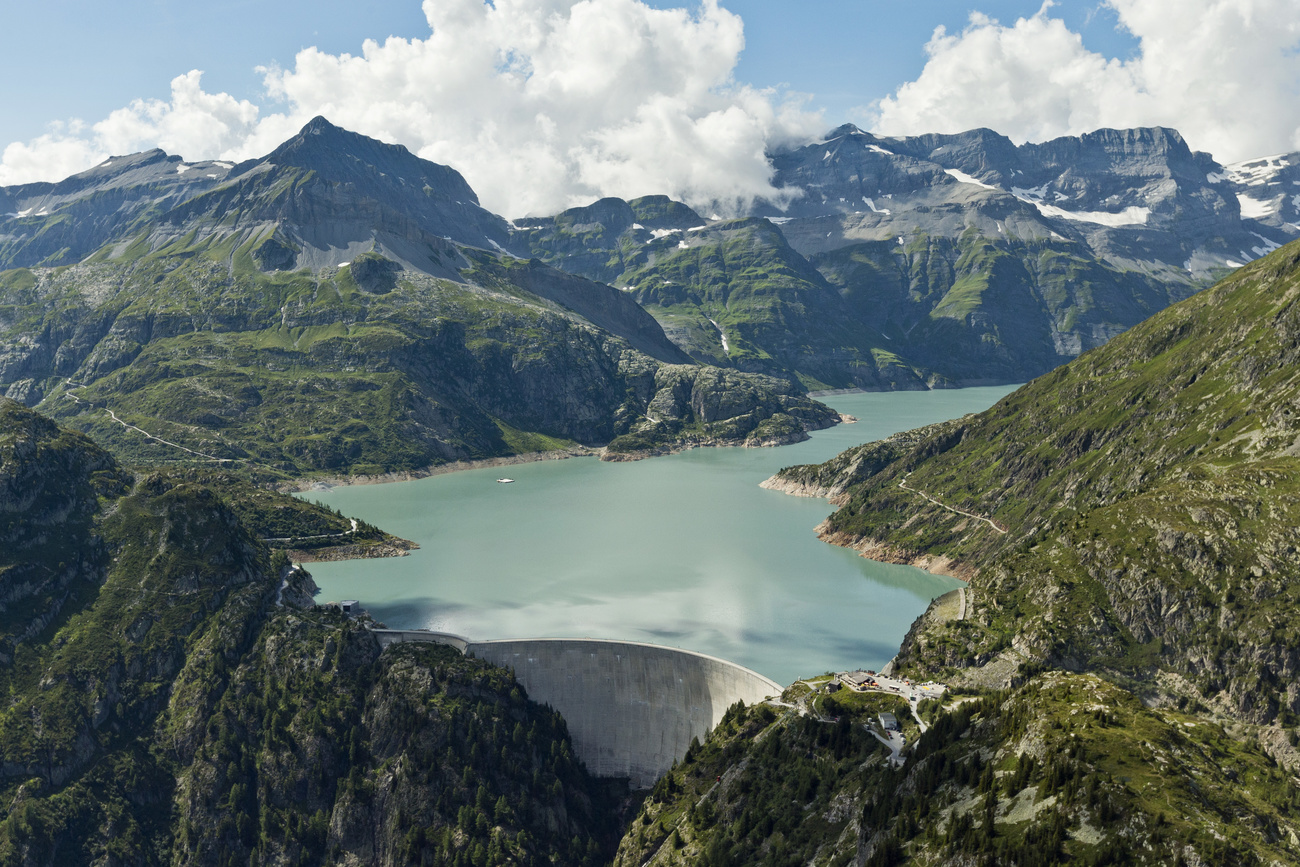
Swiss minister bemoans lack of investment in renewables

Switzerland has not developed enough renewable energy over the past ten years, according to Environment Minister Simonetta Sommaruga. The country should be obliged to store more energy in winter to prevent future power outages, she said in an interview on Thursday.
It is unlikely that Switzerland will face an acute energy shortage in the near future, said Sommaruga, referring to an ongoing political debate on the issue. But steps are needed to rule it out completely, she said.
“If we act wisely, we can secure the electricity supply in the medium and long term,” the minister said in an interview published in the Tages-Anzeiger newspaper. “This requires an effort to expand renewable energies. Switzerland cannot afford to wait another ten years.”
She said two draft bills before parliament contain all the elements necessary to promote renewable energies until 2030 and to guarantee future power supply, including the compulsory storage of electricity in winter.
Companies operating Alpine dams and reservoirs will be obliged to retain water to produce electricity in winter and will be compensated accordingly, she said.
“This can be implemented very quickly and is cheap. In addition, we want to strengthen electricity production in winter by expanding hydroelectric storage,” she said, adding that these measures could come into force in 2025 if parliament agrees.
“If these measures are insufficient, then – and only then – gas-fired power would become an option. But they must be climate-neutral,” she added.
The Federal Council (executive body) has commissioned the Federal Electricity Commission to develop a concept for gas-fired power stations in the event of a shortage.
The main source of energy in Switzerland is hydropower, which covers 56% of the grid, while 35% is nuclear, 3% fossil fuel-generated and just under 6% from other renewable energies.

More
Switzerland could face electricity shortage by March
Too dependent on electricity imports
Switzerland is in a good position, said the minister, but it has relied heavily on imports over the past ten years.
“Swiss electricity companies have invested a lot abroad. At home, on the other hand, far too little renewable energy sources were developed. Today we have to admit that this was a lapse in judgement.”
The question of future energy supply and possible power outages have sparked keen debate among politicians and business leaders. Earlier this month the Swiss government shared its vision for coping with major power outages from 2025 in a brochure shared with thousands of companies. The brochure sent to 30,000 Swiss companies said firms could be ordered to reduce their electricity consumption by a specific percentage in the event of a shortage.
In the absence of an electricity agreement with the European Union, such a scenario is likely if large power plants fail in Switzerland or abroad, it warned.
“A power shortage is, next to a pandemic, the greatest threat to Switzerland’s energy supply,” Economics Minister Guy Parmelin said in a video.

More
Alpine nimbyism freezes Swiss green energy dreams

In compliance with the JTI standards
More: SWI swissinfo.ch certified by the Journalism Trust Initiative






























You can find an overview of ongoing debates with our journalists here . Please join us!
If you want to start a conversation about a topic raised in this article or want to report factual errors, email us at english@swissinfo.ch.